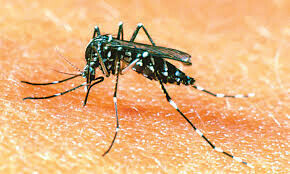

Experts say people abuse animals when they don’t regard them as equal and consider their lives inferior to that of humans.
On June 14, a local landlord in Sindh’s Sanghar district allegedly chopped off a camel’s leg as punishment for daring to venture into his field for fodder in the Mund Jamrao village. The eight-month old female camel, Cammie, as she is now being called, was eventually moved to a shelter but her agonising cries echoed on social media for the next several days if not weeks.
In Pakistan, such acts of barbarity aren’t all that new. Last week, videos of stray dogs caged at a medical university in Punjab — purportedly used for ‘experiments’ — started doing the rounds. Before that, news had come forth of a donkey being brutally beaten up in Hyderabad. Unable to sustain the brutal injuries, Dobby the donkey passed away.
Every time these incidents surface, they are followed by some chatter of accountability and animal rights before the news cycle inadvertently moves on — there are always more things to rage on in Pakistan. Albeit forgettable, these incidents expose the depth of inhumanity that now exists in society.
Just a look at the streets is enough to prove this; battered and brutally injured stray animals — from donkeys to cats and dogs — aren’t a rare sight in Karachi.
Having closely witnessed this abuse, there are several questions that come to mind, the most prominent of them being: why would someone do something so horrific to a being that can’t fight back or even voice their pain?
‘Crime of power’
According to research by the Animal & Society Institute, animal cruelty perpetrators have higher chances of involvement in crimes against humans, as well as other problematic behaviours.
“Researchers have suggested that involvement in animal cruelty behaviours, either as an observer or participant, may be associated with the development of attitudes that reflect a general insensitivity toward the well-being of others,” the study highlighted.
Psychotherapist Farwa Naqvi concurred with these findings. “Any kind of abuse, be it with animals or humans, is a crime of power,” she told Dawn.com. “The abuser comes from a place of victimhood and wants to feel powerful.”
She explained that people abuse animals when they don’t regard them as equal and consider their lives inferior to that of humans. “Research shows that serial killers/offenders always begin with animals … the less powerful … then like a hit it keeps increasing with time.”
And the seed of this apathy is sown at the stage of adolescence.
Referring to the recent incident of a stray dog being thrown off the roof in Karachi, the psychotherapist highlighted that many children were present at the site. “Just the way you teach kids languages, you also teach them mannerisms. So when they see their elders indulging in such crimes, they are likely to do the same because in their minds, this is the right thing to do.
“This way, we are killing empathy and emotional intelligence in our children; if they don’t feel empathy for animals, how would they feel empathy for their family members and others around them?” she emphasised.
Dr Quratul Ain Rizvi, a professor at Karachi University’s Criminology Department, pointed out that often, animal abuse becomes a childhood pattern and matures into criminal tendencies. “These children grow up with the mindset that if hitting animals is okay, so is doing the same with humans.”
The abuse even becomes an avenue for channelling anger and aggression. “Usually, these behaviours are taken from a familiar place — the child must have seen someone doing it in their surroundings, probably their parents or elders, and thought it was okay,” she explained.
This then becomes a vicious cycle with no end in sight. Both Naqvi and Rizvi agreed that irrespective of age, there are two factors that encourage abuse: entitlement and impunity. Animal abuse, the experts said, is repetitive because the perpetrators know they will get away with anything.
“They do not consider what they are doing to be a crime because there is no punishment for it,” Naqvi highlighted, adding that the onus was on the government to penalise animal abuse.
Legal loopholes
Unfortunately, Pakistan has almost no animal welfare policy or service in place. The most prominent law for animal protection, the Prevention of Cruelty to Animals Act (1890) — which dates back to the colonial era — is limited in scope and lacks understanding of animal welfare in today’s context.
For instance, the maximum fine for animal cruelty in the law has remained at Rs50, for first-time offenders, since it was introduced in 1890. The government had amended the law in 2018, increasing the fines to Rs10,000. However, that is only restricted to Islamabad and does not extend to the rest of the country because after the 18th Amendment, provinces were required to enact their own laws, which is yet to be done.
Syed Naeem Abbas, advocacy manager at animal welfare organisation, Brooke Pakistan, pointed out that although the existing law criminalises beating and cruelty, it does not talk about an animal’s well-being.
“We need to understand that today’s issues are different and should either update outdated laws or introduce new ones,” he stressed.
Abbas told Dawn.com that his organisation and the Sindh government had drafted a bill on animal welfare. The bill’s draft was prepared in 2021 and has been travelling within departments to date. It was recently sent to the law department by the livestock department for approval following which it will be presented in the provincial assembly.
The new law, when and if enacted, would entail legal action against experimentation on animals, penalise overloading, overworking and use of sub-standard medicines, and criminalise cruel practices and neglect.
“It will empower the livestock department to appoint inspectors who would be given the authority to punish and arrest those who indulge in animal abuse,” Abbas said. The law would also increase punishment — jail time and fines — for offenders.
But again, the question of when the bill would be turned into law hangs in the air.
“We have done our part, the rest is now the government’s job … but we can clearly see that animals are not their priority,” Abbas lamented.
Government apathy
Speaking to Dawn.com, Sindh Livestock Department Director General Nazir Kalhoro said there were 1,157 veterinary hospitals across the province but the vast majority of them were not overseen by a proper authority, and neither was a budget allocated for them.
“We are only given funds sufficient for the provision of medicines, free vaccination and first aid,” he stated.
At the Richmond Crawford Veterinary Hospital in Karachi, one of the handful of veterinary hospitals run by the provincial livestock department, the conditions are appalling to say the least.
Before even entering the building, it is the shrill cries of animals that welcome you. The old and dilapidated walls of the hospital have been hidden with shiny paint. Inside, lifeless animals lie on stretchers as vets tower over them.
The hospital comprises a total of three rooms and a hall. Unsurprisingly, the largest room has been allocated to the head of the facility while the doctors get small desks set up in the hall. Ironically, that is also where small animals such as dogs and cats are treated.
Adjacent to the hall is an operation theatre. The stench inside is overpowering and it is hard to ignore the forgotten blood stains on the operating table. The rust-laden surgical equipment narrates yet another tale.
But the worst is yet to come. The backdoor of the hospital leads to a backyard where sheep, donkeys, goats and cows are treated. These animals are attended to on a makeshift wooden table under a tree. Some even lie on the hard ground, writhing in pain, waiting for someone to tend to them.
According to Dr Chander Kumar, the head of the facility, the hospital operates from 9am to 8pm with doctors on duty round the clock and provides free-of-cost medicines and treatment. “We take all cases, from accidental injuries to spay and neuter,” he said.
The facility does not have an ambulance or a rescue service and solely relies on those citizens who care about animals a tad bit more than others. It also lacks facilities for the admission of injured and critical animals.
However, work on upgrading indoor treatment facilities at the Richmond Crawford Veterinary Hospital is under way, claimed Dr Safdar Ali, deputy director of Animal Husbandry and Livestock, Karachi. “Hopefully, our plans will materialise within the next six months.”
He told Dawn.com that the department was doing its best given the budgetary and other limitations, particularly the shortage of vets. “As per international standards, there should be one vet for 10,000 animals. But here, there is one doctor for 80,000 animals,” Dr Safdar lamented.
He hopes that this will change though. Following outrage over the camel incident, Sindh Chief Minister Murad Ali Shah issued orders for the posting of good practising veterinary doctors and technicians along with the provision of facilities such as X-ray machines, ultrasound and others.
Overwhelmed shelters
Meanwhile, the government’s inefficiencies and inadequacies are rapidly filling up privately run animal shelters, forcing them to make the difficult choice of who can be rescued and who cannot.
Activists point out that not just street animals, even pets have it tough, often sharing the same fate at the hands of humans. According to Naqvi, the reason behind this is that for most people keeping pets has become more of a status symbol and has less to do with genuine affection.
Dr Meena Memon, a vet, recalled the day when a labrador was brought to her clinic. “The Edhi Foundation’s rescue team had brought him over … they said the poor animal was tied to an electricity pole for days after his owners abandoned him,” she told Dawn.com.
The dog had lost consciousness after being left under the heat for days without food and water. Despite several efforts, he didn’t make it.
This is one such case. The social media feeds of shelters, such as the Ayesha Chundrigar Foundation and CDRS Benji, are filled with heartbreaking stories of beaten and bruised animals.
Sarah Jehangir, who runs CDRS Benji — the shelter where Cammie is under treatment — told Dawn.com that the cases of animal abuse are rampant and way more than what was probably reported or seen on social media. “We just can’t reach them.”
Running a shelter and rescue service is not an easy job. It requires not just money but also food, medical attention and safe spaces. “We get hundreds of cases but there’s a lack of donations … people are willing to report these cases but not willing to get involved,” Sarah said.
It is therefore impossible for rescue services to take in all animals.
True companions
While human beings may be the most sentient creatures on this planet, animals too are sensitive and experience emotions, just as we do. Recent studies have shown that fish might experience anxiety, camels can feel threatened, and dogs can get depressed.
“All forms of life have a significance,” said Sindh Wildlife Conservator Javed Ahmed Mahar. “If one swifts through history, you will find the innumerable sacrifices that animals have rendered for us … and their contribution to the planet we live on today is unimaginable.”
There is a vast amount of scientific literature that backs Mahar’s statement. It shows that animals have a deep and positive impact on human life, and serve to be the best of companions.
“But the widespread disinformation in society today makes us blind to all of these facts,” the conservator decried. He stressed that it was important to combat this through awareness, particularly among children.
“We need to update our curriculum by introducing religious and scientific lessons that debunk these theories,” he said, adding that softness with animals was an integral teaching of Islam as well. “We see so much hatred for dogs in our society … If they were so bad, why would God create them in the first place?”
In his classic novel, ‘The Unbearable Lightness of Being’, Milan Kundera writes: “True human goodness, in all its purity and freedom, can come to the fore only when its recipient has no power.
“Mankind’s true moral test, its fundamental test (which lies deeply buried from view), consists of its attitude toward those who are at its mercy: animals. And in this respect, mankind has suffered a fundamental debacle, a debacle so fundamental that all others stem from it.”
Header image created with generative AI






